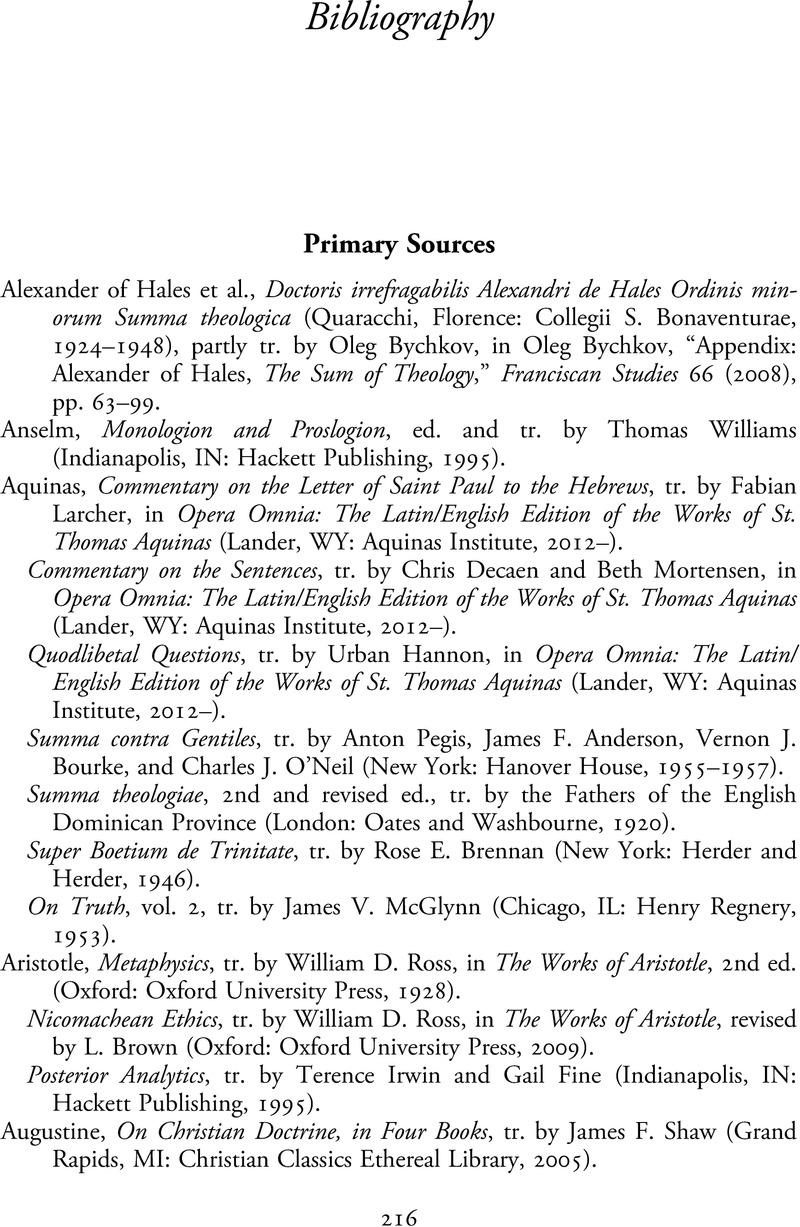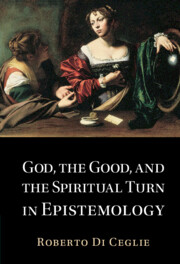Book contents
- God, the Good, and the Spiritual Turn in Epistemology
- God, the Good, and the Spiritual Turn in Epistemology
- Copyright page
- Contents
- Acknowledgments
- Abbreviations
- Introduction
- Part I Toward the Overcoming of the Lockean View of Faith and Reason
- Part II The Christian Faith as Part of Both the Problem of Inconclusiveness and Its Solution
- Part III The Spiritual Turn
- Conclusion
- Bibliography
- Index of Names
- Index of Subjects
- References
Bibliography
Published online by Cambridge University Press: 19 August 2022
- God, the Good, and the Spiritual Turn in Epistemology
- God, the Good, and the Spiritual Turn in Epistemology
- Copyright page
- Contents
- Acknowledgments
- Abbreviations
- Introduction
- Part I Toward the Overcoming of the Lockean View of Faith and Reason
- Part II The Christian Faith as Part of Both the Problem of Inconclusiveness and Its Solution
- Part III The Spiritual Turn
- Conclusion
- Bibliography
- Index of Names
- Index of Subjects
- References
Summary

- Type
- Chapter
- Information
- God, the Good, and the Spiritual Turn in Epistemology , pp. 216 - 229Publisher: Cambridge University PressPrint publication year: 2022

